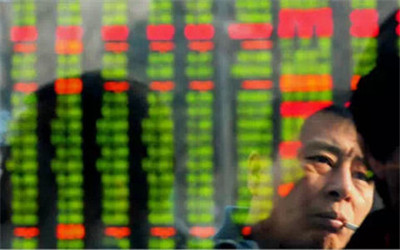(单词翻译:单击)
In an era of performance chasing and “tactical trading,” holding on to a buy rating for seven and a half years shows commitment. But even loyal Morgan Stanley has downgraded China’s stock market. Other brokers are making cautious noises, too. A flurry of capital raisings and initial public offerings suggest that companies also think this is a good time to sell. Worries about speculative froth are focused on high levels of margin debt in retail trading accounts. In the past three days China’s markets have swooned.
在一个追逐表现、讲究“策略性交易”的时代,维持“买入”评级达7年半彰显了一种铁杆情结。但就连忠实的摩根士丹利(Morgan Stanley)都已下调了中国股票市场的评级。其他经纪商也纷纷附和,提醒投资者谨慎行事。一连串的融资活动和首次公开发行(IPO)表明,各公司也认为这是一个很好的卖出时机。对投机性泡沫的担忧主要集中在个人交易账户的保证金借款(margin debt)水平过高上。中国股市已经连续大跌了三天。

Bears have the momentum, then. But they should be careful. The authorities are against them. Central and local governments do not want a market collapse added to the list of threats to growth and, as major holders of financial assets, will act to protect their own balance sheets.
于是,看跌中国股市的人来了劲头。但他们应该小心。当局站在他们的对立面。无论中央还是地方政府不希望在增长威胁清单上增加股市崩盘这一项,并且由于持有大量金融资产,他们将采取行动保护自己的资产负债表。
So official Beijing mouthpiece Xinhua has said that financial reforms and easing measures would keep the bull market going. And fiscal measures have been added to the liquidity tools already employed in stimulating the domestic economy.
所以,官方喉舌新华社表示,金融改革和宽松政策将推动牛市走下去。中国为刺激国内经济动用了一些流动性工具,现又增加了财政措施。
Healthcare — on which China’s government spends less than 6 per cent of gross domestic product versus about 10 in most major economies, on World Bank data — is one example. The government has announced drug price deregulation. Research-driven companies such as Hong Kong-listed Sino Biopharm and Shanghai-listed Jiangsu Hengrui, are potential winners.
医疗就是一个例子。世界银行(World Bank)数据显示,中国政府在医疗领域的开支不足国内生产总值(GDP)的6%,而主要经济体的这一比例约为10%。中国政府已宣布放开药品价格管制。侧重研发的公司将是潜在赢家,比如在香港上市的中国生物制药(Sino Biopharm),在上海上市的江苏恒瑞医药(Jiangsu Hengrui)。
To offset concerns around rising costs to consumers, the government will help subsidise the elderly and critically ill. On Wednesday, China’s State Council announced a pilot tax incentive on private healthcare insurance.
为了消除有关看病越来越贵的担忧,中国政府将向老人和重症患者提供补贴。周三,中国国务院宣布试点对购买商业健康保险给予个人所得税优惠。
Individual savings of $77-$174 a year should bolster health insurance products, Bernstein points out. Last year these grew at 41 per cent to account for more than a tenth of the life insurance market. China Life, PICC and Ping An have about a fifth of that market each, reckons Credit Suisse.
伯恩斯坦(Bernstein)指出,一年77至174美元的个人储蓄,应该会推动健康保险产品发展。去年这类产品增长了41%,占寿险市场的份额超过10%。瑞信估计,中国人寿(China Life)、中国人保(PICC)和中国平安(Ping An)在这一市场各占了20%左右的份额。
Other measures aim to lift domestic consumption. Small and medium enterprises, which create most new jobs in China, will receive tax breaks on hires and lower income tax rates. Restrictions on duty free shopping have been loosened, and import tariffs reduced.
政府还采取了旨在提振国内消费的措施。提供了大多数新增就业岗位的中小企业将在招工方面享受税收优惠,并适用更低的所得税税率。对于免税购物的限制有所放宽,进口关税也下降了。
Do not fight the Fed, investors are told. They should also think carefully before taking a swing at Beijing.
投资者得到告诫,不要跟美联储(Fed)对着干。他们在挑战北京方面之前,也应该三思而行。


